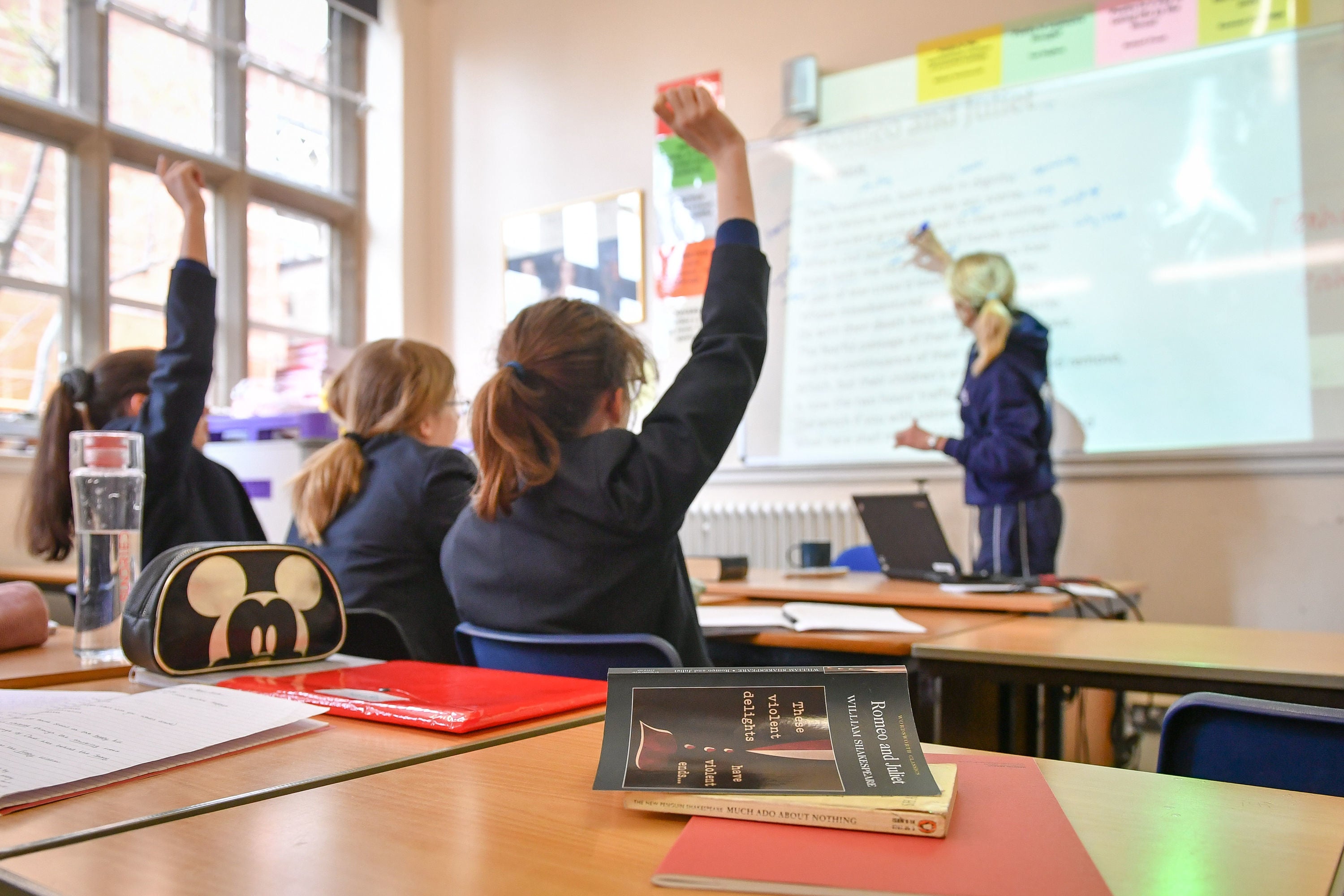Schools can switch to online lessons if they have shortage of teachers, education secretary says
New advice from Nadhim Zahawi – one day after return of mask-wearing in secondary school classes

Your support helps us to tell the story
From reproductive rights to climate change to Big Tech, The Independent is on the ground when the story is developing. Whether it's investigating the financials of Elon Musk's pro-Trump PAC or producing our latest documentary, 'The A Word', which shines a light on the American women fighting for reproductive rights, we know how important it is to parse out the facts from the messaging.
At such a critical moment in US history, we need reporters on the ground. Your donation allows us to keep sending journalists to speak to both sides of the story.
The Independent is trusted by Americans across the entire political spectrum. And unlike many other quality news outlets, we choose not to lock Americans out of our reporting and analysis with paywalls. We believe quality journalism should be available to everyone, paid for by those who can afford it.
Your support makes all the difference.Schools in England have been given the go-ahead to send pupils home and return to online teaching, if they have a critical shortage of teachers.
The advice comes in an open letter from Nadhim Zahawi, the education secretary – one day after he announced the return of mask-wearing in secondary school classes.
Teaching “remotely” will be considered acceptable “if operational challenges caused by workforce shortages make delivery of face-to-face teaching impossible”, Mr Zahawi writes.
“This should only be on a short-term measure and settings should return to full-time in-person attendance for all pupils as soon as practicable,” the letter adds.
In universities, face-to-face learning is “what students want and expect”, Mr Zahawi writes, adding: “We expect face-to-face teaching to continue.”
The education secretary has already angered some Conservative MPs by instructing older pupils to wear masks at all times, instead of just in communal areas.
The guidance is being brought back for secondary schools until 26 January – in the strongest indication yet that existing ‘plan B’ measures will also be kept in place through this month.
In the open letter to education leaders, Mr Zahawi urges them to “do everything in your power to protect face to face learning for our children and young people”.
But he writes: “I understand that a possible challenge for keeping young people in classrooms is staff absence, which is why I am continuing to call on any former teacher who can do so to come back to the classroom.
“If operational challenges caused by workforce shortages in your setting make delivery of face-to-face teaching impossible, I would encourage you to consider ways to implement a flexible approach to learning.
“Flexible delivery involves utilising all your available teaching and non-teaching workforce to maximise on-site education for as many pupils as possible while you flexibly deliver provision either on-site or remotely to some pupils.”
The schools’ watchdog Ofsted has announced it will not be inspecting secondary schools during the first week of term in January, as schools undertake on-site pupil testing.
Any nursery, school or college that is “significantly impacted by Covid-related staff absence” will be able to ask for its inspection to be deferred.
And 7,000 air purifiers will be installed in areas “where quick fixes to improve ventilation are not possible, such as being able to open a window”.
Robert Halfon, chair of the Commons education committee said he is worried about the “negative impact” of wearing face coverings on young people’s mental health.
But Mary Bousted, the joint general secretary of the National Education Union, rejected the fear, saying: “We have mask-wearing in secondary schools in Wales and Scotland, and I don’t think that it is causing a huge problem.
“Schools are crowded buildings. Even in secondary only just under half the pupils have been vaccinated. And we know that mask-wearing does have an effect of suppressing transmission.”
Join our commenting forum
Join thought-provoking conversations, follow other Independent readers and see their replies
Comments